
Tecnologia y Ciencias del Agua
Scope & Guideline
Connecting research and practice in sustainable engineering.
Introduction
Aims and Scopes
- Water Resource Management and Sustainability:
Research on the sustainable management of water resources, including urban and rural water supply, wastewater treatment, and the assessment of water quality and availability. - Hydrological Modeling and Analysis:
Development and application of hydrological models to understand and predict water flow, quality, and availability in various environments, often utilizing advanced statistical and computational techniques. - Climate Change and Its Impact on Water Systems:
Investigation of the effects of climate change on hydrological cycles, water availability, and the management of water resources, including adaptation strategies. - Socio-environmental Aspects of Water Use:
Exploration of the social, legal, and economic dimensions of water use, including issues of equity, access, and governance in relation to water resources. - Innovative Water Treatment Technologies:
Research into new and improved technologies for the treatment of water and wastewater, focusing on efficiency, sustainability, and the removal of contaminants. - Flood Risk Assessment and Management:
Study and modeling of flood events, including risk assessment methodologies and management practices to mitigate flooding impacts.
Trending and Emerging
- Integrated Water Management Approaches:
There is an increasing trend towards integrated approaches that combine water management with social, economic, and environmental considerations, reflecting a holistic view of water resources. - Climate Resilience and Adaptation Strategies:
Research focusing on resilience strategies in the face of climate change is gaining prominence, emphasizing the need for adaptive management of water resources to cope with changing environmental conditions. - Emerging Contaminants and Water Quality:
The investigation of emerging contaminants in water sources, including pharmaceuticals and microplastics, is a growing area of research, highlighting concerns over water safety and public health. - Use of Artificial Intelligence in Hydrology:
The application of machine learning and artificial intelligence techniques in hydrological modeling and water management is trending, indicating a shift towards data-driven approaches. - Public Health and Water Security:
Research linking water access and quality to public health outcomes, particularly in the context of pandemics and environmental justice, is emerging as a critical area of interest. - Community-Based Water Management Practices:
There is a rising focus on community involvement and local governance in water management practices, emphasizing participatory approaches to enhance sustainability and equity.
Declining or Waning
- Traditional Water Supply Infrastructure:
Research focusing solely on conventional water supply infrastructure without integrating new technologies or sustainability practices has decreased, reflecting a shift towards more innovative and sustainable approaches. - Agricultural Water Use without Environmental Considerations:
Studies centered on agricultural water use that do not address the environmental impacts or sustainability aspects are becoming less frequent, as there is a growing emphasis on sustainable agricultural practices. - Single-Factor Flood Analysis:
The focus on single-factor analyses for flood risk (such as only considering rainfall without other variables) is declining as researchers increasingly adopt more complex, multivariate approaches. - Legal Frameworks without Practical Applications:
Research discussing legal frameworks for water management without linking them to practical applications or case studies is becoming less common, as there is a call for more actionable insights. - Basic Water Quality Testing:
Publications centered only on basic water quality testing methods, without exploring advanced or innovative techniques, are waning as the field advances towards more sophisticated approaches.
Similar Journals
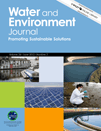
WATER AND ENVIRONMENT JOURNAL
Advancing knowledge for a sustainable future.WATER AND ENVIRONMENT JOURNAL is a prominent interdisciplinary journal dedicated to the latest research and advancements in the fields of water resources, environmental engineering, and pollution management. Published by WILEY, the journal has established itself as an essential resource for academics, practitioners, and policymakers since its inception in 1987. With an impressive impact factor reflecting its robust influence, it ranks in the Q2 and Q3 quartiles across multiple categories, including Water Science and Technology, Environmental Engineering, and Management, Monitoring, Policy and Law. The journal welcomes high-quality research articles, reviews, and case studies that address the critical challenges facing water and environmental sciences. As an open access publication, it provides a platform for widespread accessibility and engagement, ensuring that the knowledge generated is disseminated to a diverse audience. With a commitment to advancing understanding and solutions in water-related issues, WATER AND ENVIRONMENT JOURNAL plays a crucial role in shaping the future of environmental research and technology.
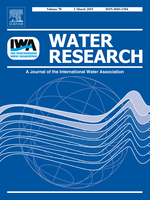
WATER RESEARCH
Cultivating a deeper understanding of our most vital resource.WATER RESEARCH, published by Pergamon-Elsevier Science Ltd, is a premier international journal dedicated to the advancement of knowledge in the interdisciplinary field of water science and technology. With a significant impact factor, WATER RESEARCH holds a distinguished position, consistently ranking in the top quartile (Q1) across multiple categories including Civil and Structural Engineering, Environmental Engineering, and Pollution. Established in 1967 and set to continue its legacy until at least 2024, this journal provides a vital platform for researchers and professionals to disseminate cutting-edge findings related to water sustainability, quality, and management. Although the journal follows a traditional access model, its commitment to disseminating impactful research ensures that it remains an essential resource for academia and industry alike. With a rigorous selection process, the journal includes articles that significantly contribute to the understanding and resolution of global water-related challenges, making it an invaluable asset for researchers, students, and practitioners engaged in this critical area of study.
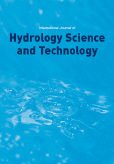
International Journal of Hydrology Science and Technology
Exploring Innovative Solutions in Water ScienceThe International Journal of Hydrology Science and Technology, published by InderScience Enterprises Ltd, is a distinguished platform dedicated to advancing knowledge in the field of hydrology, environmental engineering, and water science. With an ISSN of 2042-7808 and an E-ISSN of 2042-7816, this journal, established in 2011 and continuing through 2024, serves as an essential resource for researchers, professionals, and students alike. Despite being categorized in the Q3 quartile across multiple disciplines including Earth and Planetary Sciences, Environmental Engineering, Waste Management and Disposal, and Water Science and Technology, the journal maintains a reputation for contributing significant findings that impact both theory and practical applications in addressing hydrological challenges. Currently unavailable through Open Access options, the journal remains committed to disseminating valuable research that informs sustainable practices in water resource management. The editorial team encourages submissions that explore innovative strategies and methodologies while fostering interdisciplinary discussions, making this journal a pivotal player in shaping the future of hydrological science.
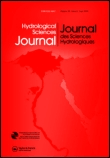
Hydrological Sciences Journal
Advancing water science for a sustainable future.Hydrological Sciences Journal, published by Taylor & Francis Ltd, is a leading peer-reviewed publication dedicated to advancing the field of hydrology, spanning topics from water management to climate impacts on hydrological systems. With an impressive impact factor and a noted Q1 category ranking in Water Science and Technology, the journal occupies a pivotal role in the academic landscape, facilitating high-quality research dissemination since its inception in 1982. The journal is indexed in Scopus, holding a commendable rank of #48 out of 261 in the Environmental Science category, placing it in the 81st percentile among its peers. Although it does not offer Open Access options, the journal ensures extensive reach and readership through institutional subscriptions. As it converges toward its milestone of 2024, the Hydrological Sciences Journal remains an indispensable resource for researchers, professionals, and students eager to explore the latest advancements and methodologies in hydrological research.
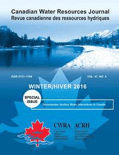
Canadian Water Resources Journal
Elevating discourse in the realm of water science.Canadian Water Resources Journal, published by Taylor & Francis Inc, is a leading academic journal dedicated to the field of water science and technology. With a significant history dating back to its inception in 1976, the journal offers a platform for high-quality, peer-reviewed research that addresses critical issues in water resources management, hydrology, water quality, and policy. The journal is recognized for its valuable contributions to the field, exemplified by its classification in the Q2 category for Water Science and Technology and holding a respectable rank of #137 out of 261 in the Scopus Environmental Science category. While it does not currently offer open access, its articles remain accessible through various institutional subscriptions, ensuring that professionals, researchers, and students stay updated with the latest advancements and discussions in water resources. As it converges towards its ongoing publication commitment through 2024, the Canadian Water Resources Journal remains an essential resource for those engaged in the pursuit of sustainable water management solutions.

Water Conservation Science and Engineering
Unveiling Innovations in Water Science and TechnologyWater Conservation Science and Engineering, published by SPRINGERNATURE, is a vital academic journal dedicated to advancing the fields of environmental engineering, ocean engineering, waste management, and water science and technology. Since its inception in 2016, the journal has quickly established itself within the academic community, achieving a commendable Q3 ranking across multiple categories in 2023. With an ISSN of 2366-3340 and an E-ISSN of 2364-5687, it is accessible to a global readership eager to explore the latest research and innovations in water conservation and sustainable practices. Although currently not open access, the journal is committed to publishing high-quality scholarly articles that provide insights into effective water management strategies, innovative engineering solutions, and the critical importance of preserving our water resources. Based in Singapore, Water Conservation Science and Engineering aims to foster interdisciplinary collaboration among researchers, professionals, and students, making it an essential resource for anyone passionate about environmental sustainability and preservation.

JOURNAL OF THE AMERICAN WATER RESOURCES ASSOCIATION
Empowering professionals with essential knowledge in water science.The JOURNAL OF THE AMERICAN WATER RESOURCES ASSOCIATION, published by Wiley, is a premier platform dedicated to advancing the field of water resource management and research. With an ISSN of 1093-474X and an impressive Q1 ranking in multiple categories, including Earth-Surface Processes, Ecology, and Water Science and Technology, this journal serves as a vital resource for professionals, researchers, and students alike. Established in 1967 and set to converge through 2024, it has consistently published cutting-edge research that influences policy and practice in water resource management. The journal's open access option enhances its reach, ensuring that critical findings are accessible to a wider audience. The Scopus rankings further underscore its impact, placing it in the top quartile within its fields, highlighting its importance in shaping scholarly discourse. As a significant contributor to the understanding and management of freshwater systems, the journal offers a crucial means for sharing insights and fostering collaboration in the vital realm of water resources.

Journal of Applied Water Engineering and Research
Exploring the Future of Water Resource ManagementJournal of Applied Water Engineering and Research is a dynamic platform dedicated to the advancement of knowledge in the field of water science and technology. Published by Taylor & Francis Ltd, this journal aims to bridge the gap between theoretical research and practical applications in water engineering, providing a crucial resource for researchers, practitioners, and policymakers. With an ISSN of 2324-9676 and an impressive ranking in the Q3 category for Water Science and Technology, it occupies a distinctive position within the scholarly community. The journal covers a wide spectrum of topics, including innovative water management strategies, sustainable practices, and the integration of technology in water resource management, thus contributing significantly to the discourse surrounding environmental sustainability. With publication years converging from 2013 to 2024, the Journal of Applied Water Engineering and Research continues to foster impactful research, enhancing our understanding and management of vital water resources.

WATER RESOURCES MANAGEMENT
Exploring the Frontiers of Water Science and EngineeringWATER RESOURCES MANAGEMENT is a prestigious journal published by SPRINGER, renowned for its contribution to the fields of Civil and Structural Engineering as well as Water Science and Technology. Operating since 1987, this journal has established itself as a vital resource for researchers, professionals, and students alike, boasting a remarkable impact factor and a Q1 designation in both relevant categories as of 2023. The journal is indexed in Scopus, achieving commendable ranks—34th in Environmental Science and 62nd in Civil and Structural Engineering, placing it in the top percentiles of its fields. Although it does not offer open access, WATER RESOURCES MANAGEMENT serves as a comprehensive platform for disseminating innovative research, discussions, and case studies that address the global challenges of water resource management. With a commitment to fostering knowledge and advancing the understanding of integrated water management solutions, this journal is indispensable for anyone engaged in these critical scientific domains.
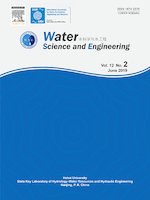
Water Science and Engineering
Exploring the Depths of Water Research and EngineeringWater Science and Engineering, published by ELSEVIER, is a premier open access journal that has been disseminating vital research in the realms of civil and structural engineering as well as ocean engineering since 2008. With its ISSN 1674-2370 and E-ISSN 2405-8106, this journal plays a crucial role in advancing knowledge and innovation within the sector, evidenced by its impressive rankings in Scopus—holding the 15th position out of 105 in Ocean Engineering and 76th out of 379 in Civil and Structural Engineering, placing it in the 86th and 80th percentiles, respectively. Attaining a Q1 classification in both categories for 2023 highlights its importance and influence in the academic and professional communities. The journal addresses a broad spectrum of topics integral to water sciences, offering significant insights for researchers, professionals, and students alike. With a convergence period spanning from 2010 to 2024, it continues to explore contemporary issues and advancements, providing a pivotal platform for the dissemination of research. The journal is accessible to a global audience, reaffirming its commitment to fostering open access and enhancing accessibility to vital scientific literature.